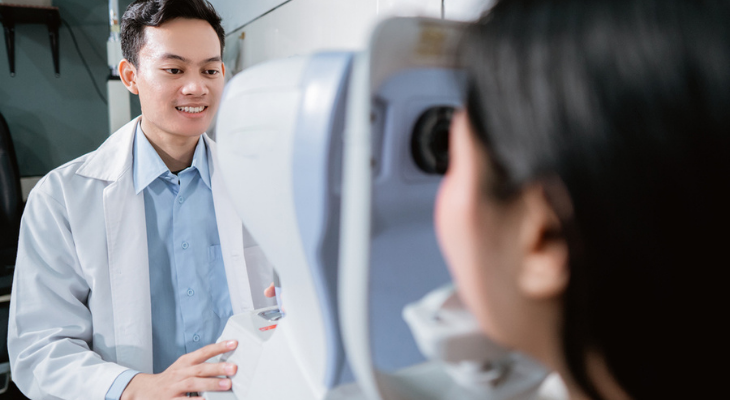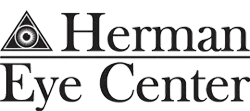
Testing Your Eye Pressure
High pressure inside your eyes increases your risk of glaucoma, a disease that can cause vision loss. Although you can't tell when your eye pressure is rising, a simple test conducted at your optometrist's office helps your eye doctor detect and treat pressure changes.
Why It's Important to Keep Your Pressure Under Control
Your eye is filled with a clear fluid called aqueous humor that delivers nutrients to the cornea and lens and removes waste products. The pressure produced by the fluid helps your eyes keep their round shape.
Drainage channels constantly remove old aqueous humor and make room for a new supply of fluid. If the drainage channels become blocked, your eye pressure rises, which can cause optic nerve damage.
The optic nerve carries electrical impulses from your eyes to your brain. Once the impulses reach the brain, they're processed and transformed into images. If the optic nerve becomes damaged by high pressure inside your eyes, the impulses may not reach your brain. This can cause partial or complete vision loss.
Unfortunately, you probably won't notice any symptoms if you have a common type of glaucoma called open-angle glaucoma. Despite the lack of symptoms, open-angle glaucoma can slowly damage your vision. Angle-closure glaucoma, the more severe form of the condition, occurs suddenly and does cause symptoms. Symptoms of angle-closure glaucoma include pain, sudden loss of vision, nausea, headache, halos around lights, and blurry vision.
So how high is too high when it comes to eye pressure? The American Academy of Ophthalmology reports that pressure between 10 and 21 millimeters of mercury (mmHg) is normal and anything above that is too high. Some people who have eye pressure that's technically in the normal range may also be at risk of developing glaucoma.
3 Ways to Test Eye Pressure
Eye doctors use several methods to test eye pressure, including:
- Non-Contact Tonometry. Commonly called the "air puff" test, non-contact tonometry measures how much your corneas flatten when exposed to a burst of air. While you look at a light, a puff of air flattens your cornea. Generally, the more force needed to flatten the cornea, the higher the pressure inside your eye.
- Goldmann Applanation Tonometry. Before this test begins, your eye doctor puts drops in your eyes that numb them and also adds a few drops of a blue dye. After your eye is numb, your doctor looks in your eyes with a special machine called a slit-lamp microscope. You'll notice a glowing blue light that makes the dye added to your eyes visible. The test is conducted by pressing the tip of a small probe against your cornea. The tonometer measures how much pressure it takes to flatten the cornea.
- Electronic Tonometry. An electronic tonometer looks a little like a pen. During the test, the device is briefly held against your eye after it's numbed with eye drops. Your eye pressure reading appears on a small screen on the device.
What Happens If Your Pressure Is High
A higher-than-normal pressure reading doesn't necessarily mean that you have glaucoma. Some people naturally have higher pressure readings than others, yet have no damage to their optic nerves.
If you have a high eye pressure reading, your eye doctor will take a close look at your optic nerve. Dilating your pupil with special drops makes it possible to view the optic nerve and spot damage. They may also take a few pictures of the nerve. In addition to checking out your optic nerve, your eye doctor measures the thickness of your corneas. A thick cornea could make your pressure measurement seem higher than it really is. As part of your examination, your eye doctor will also test your side vision and check to see if the drainage channels inside your eye are blocked.
If your pressure is too high, you may need one or more of these glaucoma treatments:
- Eye drops to decrease pressure
- Laser eye surgery to improve drainage
- Traditional eye surgery if laser therapy isn't helpful
Annual eye examinations and eye pressure tests help you protect your eyesight and ensure that you get the treatment you need should you ever develop glaucoma. Contact us to schedule your next comprehensive eye examination.
Sources:
Bright Focus Foundation: How Is Eye Pressure Measured?
American Academy of Ophthalmology: Eye Pressure Testing, 2/26/18
All About Vision: Do I Have to Get the Air Puff Test, 10/21
Glaucoma Research Foundation: The Importance of Corneal Thickness, 10/29/17
